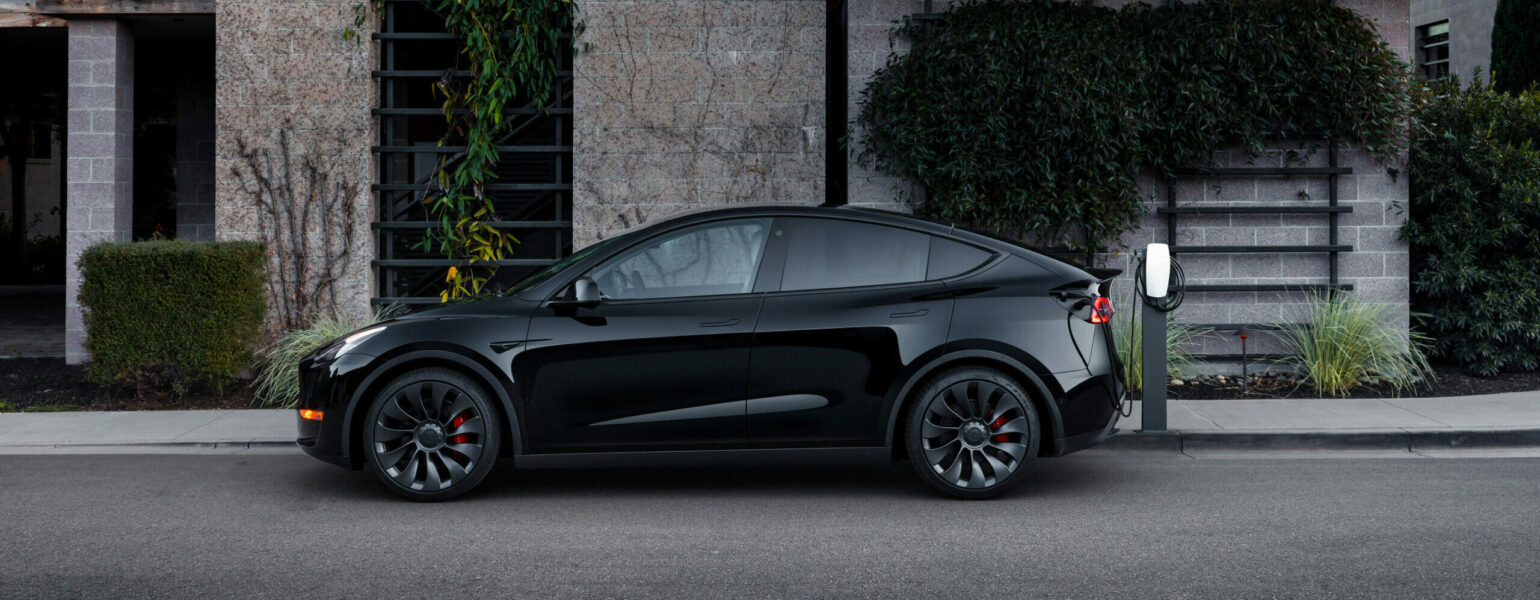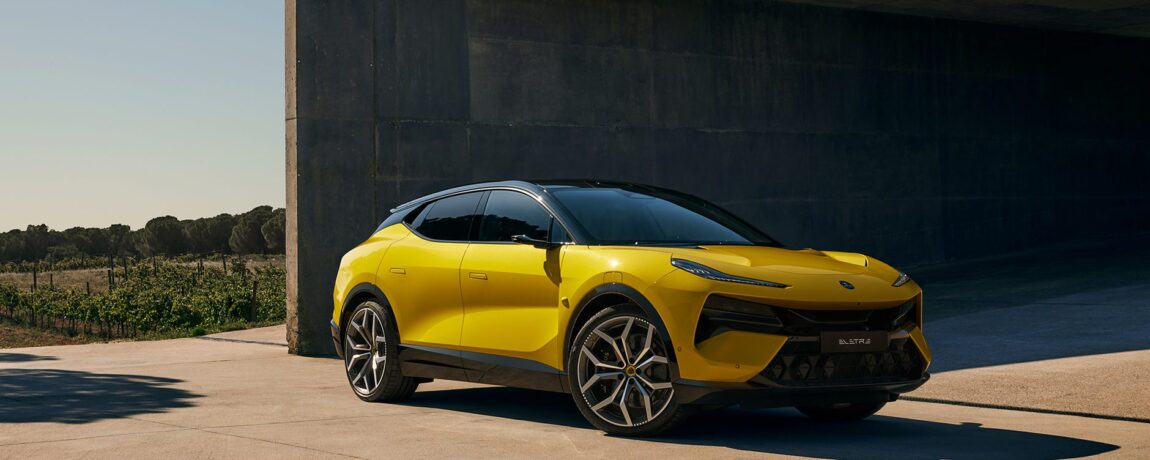
The Slowest Depreciating Electric Cars 2024
One of the biggest talking points for customers as well as industry experts over the past few months has been depreciation. The amount a car loses its value over a set period of time can make a big difference to not just how much your finance payments may cost per month, but also leave you with the risk of being in negative equity when you come to change your vehicle.
For those who are looking to purchase a nearly new car with a considerable saving to its list price when it was new, deprecation can be seen as a good thing. But for those looking to buy a brand new car, the amount its value depreciates over the period of ownership is a constant thought on most people’s minds.
In recent times, the electric car has seen a lot of negative press when it comes to how quickly they depreciate in value, and often over a short period of time. But what if you are looking to purchase a new electric car that holds on to its value better than most others? Which makes and models are you better off considering over others. Here we take a look at 8 of the least depreciating electric cars on the market right now.
Lotus Eletre
The Lotus Eletre could not be further from the traditional idea of a Lotus. Whereas the brand has historically focused on simple, lightweight, small engine, great handling sports cars, their latest range of vehicles are something entirely different. Whilst Lotus themselves are keen to point out that their current cars still handle the way a Lotus should, their electric line up of Eletre, Evija and forthcoming Emeya offer huge power, advanced technology capabilities and a level of luxuriousness not seen before from the brand.
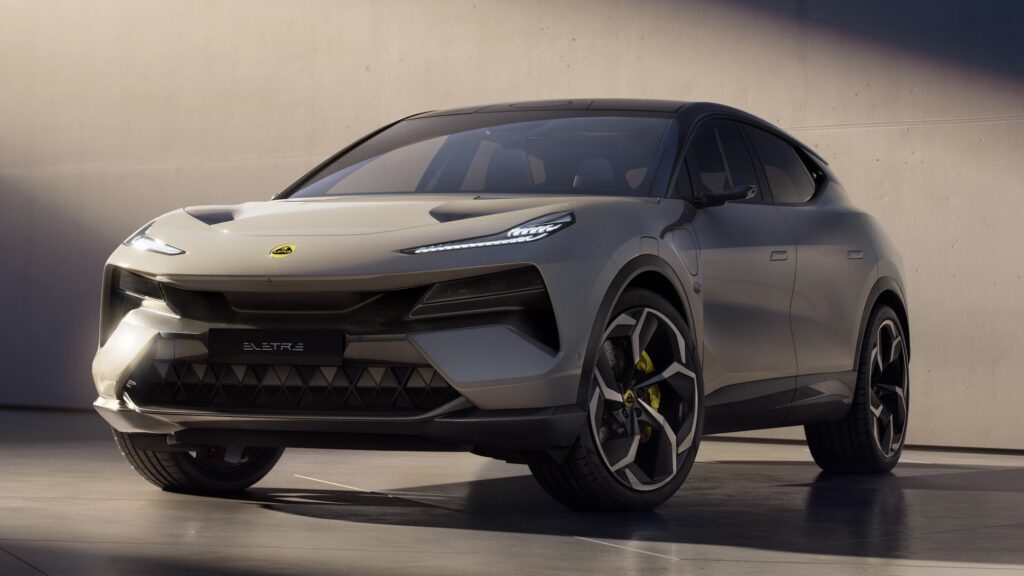
With up to 905bhp, the Eletre SUV certainly is no slouch and takes aim at the Tesla Model X Plaid and even the Lamborghini Urus amongst others. Its combination of what Lotus call ‘next-level aerodynamics’ and ‘unparalleled acceleration and control in all conditions’ as well as its stylish appearance and interior comfort and features, mean that the Eletre is a very desirable prospect. If people can get their head around the fact that they are paying upwards of £90,000, and as much as £120,000 before options for the ‘R’, for an all-electric luxury Lotus that is.
In the used car market, the Eletre certainly has time and rarity on its side so far. The earliest models currently on the market are from September 2023 onwards so they haven’t been around long enough to generate enough of a gauge to their long-term depreciation. However, with the majority of vehicles and in particular electric ones losing the majority of their value within the first year, it gives a good idea as to their current desirability and value as a pre-owned vehicle. At time of writing there were almost 80 examples of Eletre for sale, however the cheapest was £88,000 with just over 4,000 miles covered in those 9 months, that is just £1,000 less than the starting price of the model. It may be early days for the Eletre, but it seems to be holding its value remarkably well so far.
Volkswagen ID Buzz
Volkswagen have teased for years about the return of the iconic microbus and with the ID Buzz they have brought it back for the electric vehicle era. With heavily influenced styling and retro touches from the original legend, right down to the wrap around windows and two-tone paint schemes, the ID Buzz manages to blend enough of the historic with modern technology and driver convenience functionality. Its unique prospect in the current marketplace leads to its demand and desirability and accounts for its ability to hold on to its value remarkably well, especially for an electric vehicle.
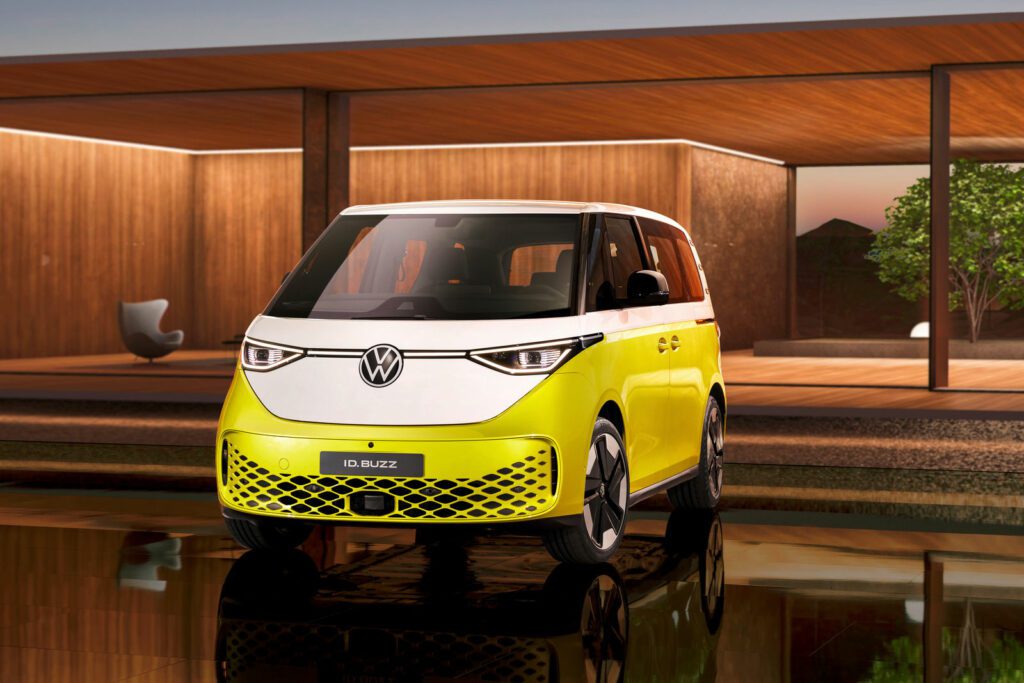
Being on sale for a couple of years means it gives a better representation as to how much value it loses over time, however not many electric cars have yet reached the industry standard of 3 years and 36,000 miles. The oldest currently for sale at time of writing are late 2022 models, and at around £47,000 represent a depreciation of just over 20%. For a vehicle that in electric car terms is relatively reasonably priced to begin with, the ID Buzz seems to be a good bet at holding on to its value well.
Tesla Model Y
The Tesla Model Y is for many people the perfect way into the famous electric car brand. Very reasonably priced for a mid-sized electric SUV, crammed with technology and driver aid capabilities and with very strong performance and battery range statistics, it is hard to overlook its appeal when considering an electric vehicle. What’s more, it looks neater and better proportioned than its Model X sibling and its smaller dimensions allows it to be more usable every day, especially without the attention grabbing gullwing doors.
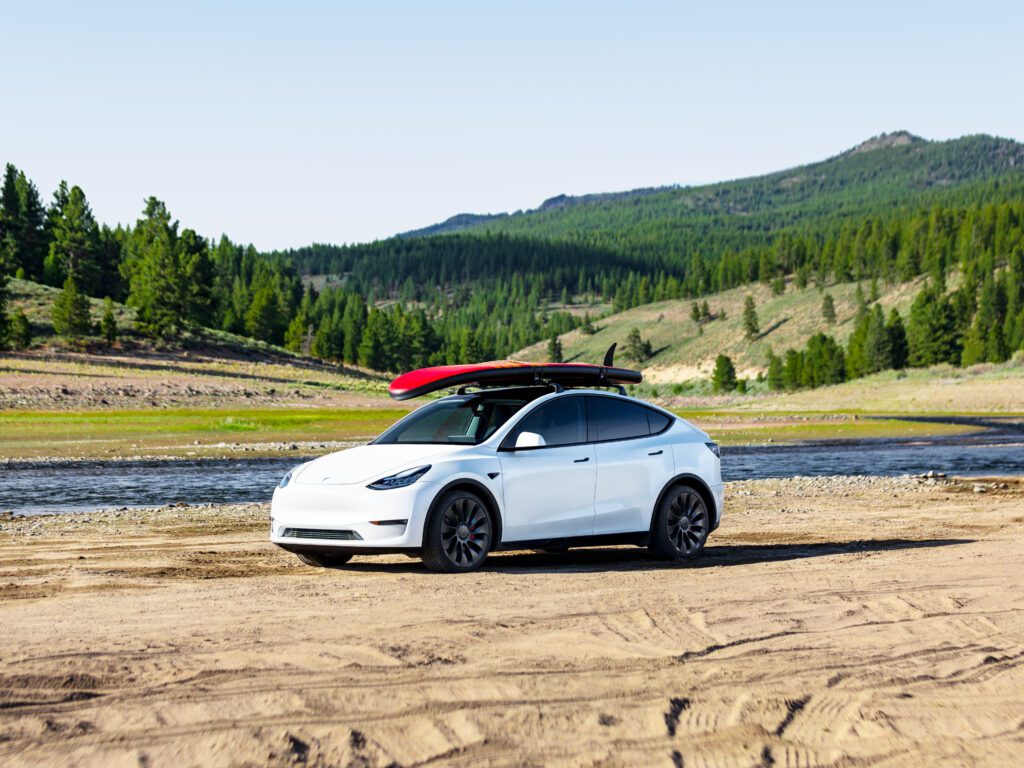
Starting at just over £44,000 in base trim and £52,000 for the sought after dual-motor long range version, the earliest versions for sale at time of writing of the latter were mid-2022 models at around £40,000. At 76% of value retained after that amount of time, the Tesla Model Y holds on to its value better than most other SUV’s at that price point, and not just electric ones at that. With much talked about price reductions for the new models since the car was launched and talk of staff cuts across the company more recently affecting the confidence and trust in the brand, it makes the slow depreciation of the model all that more impressive.
Porsche Taycan
Porsche’s Taycan has only just been given a mid-life refresh after 5 years of being on sale, which in electric car terms seems like a long time. Despite this, even the earliest of models remain one of the most impressive electric saloon cars money can buy, and the sheer number of competitors that have been released in that time have done little to knock it off its perch as the one to beat. It is widely regarded as the first electric car that didn’t have to make excuses or have drawbacks for being an electric car and was as good as any other Porsche product in the line-up. Its desirability and high regard means that residual values remain strong for the Taycan, but it is very model or specification specific as to how much of its value it retains.
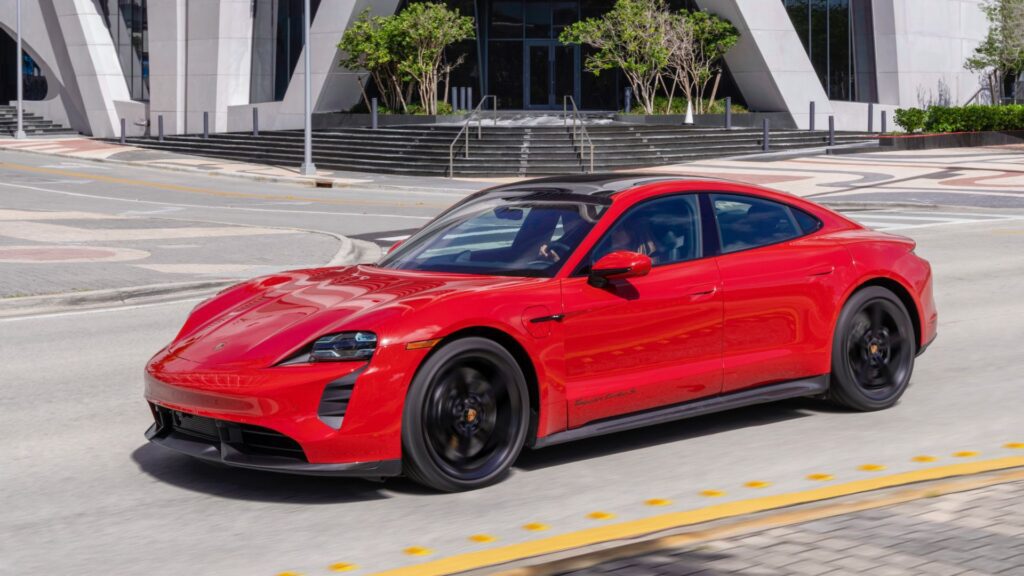
Whilst the top of the range Turbo and Turbo S models level of depreciation in the short term was enough to see them included in our recent ‘Can Depreciation Be A Good Thing?’ post, their first year value loss seems to be a substantial amount when compared to the value lost for the following years. The model is one of the very few electric cars that can be judged on the 3 years or 36,000 miles benchmark, at which the Taycan performs very well. A 2021 Taycan 4S with Performance Plus battery can be found for around the mid-£60,000 mark, which at an £80,000 starting price at that stage (before options) means that a good specification model has retained a large proportion of its value after that time. With over 600 examples to choose from, it also means there is much more chance of finding the exact specification you are looking for.
BMW i5
Just as Porsche had to ensure the Taycan drove like a proper Porsche, BMW had a similar standard to meet with their new i5. The legendary ‘ultimate driving machine’ saloon car could not accept anything less than a class leading driving experience and everyday usability of a combustion car. Launched simultaneously with the new petrol powered 5-Series, the i5 is simply a choice between how you want your executive saloon to be powered, with the intention of little difference otherwise between the two. Even the Sport, M Sport and M model designations remain as the way to choose between the trim levels.
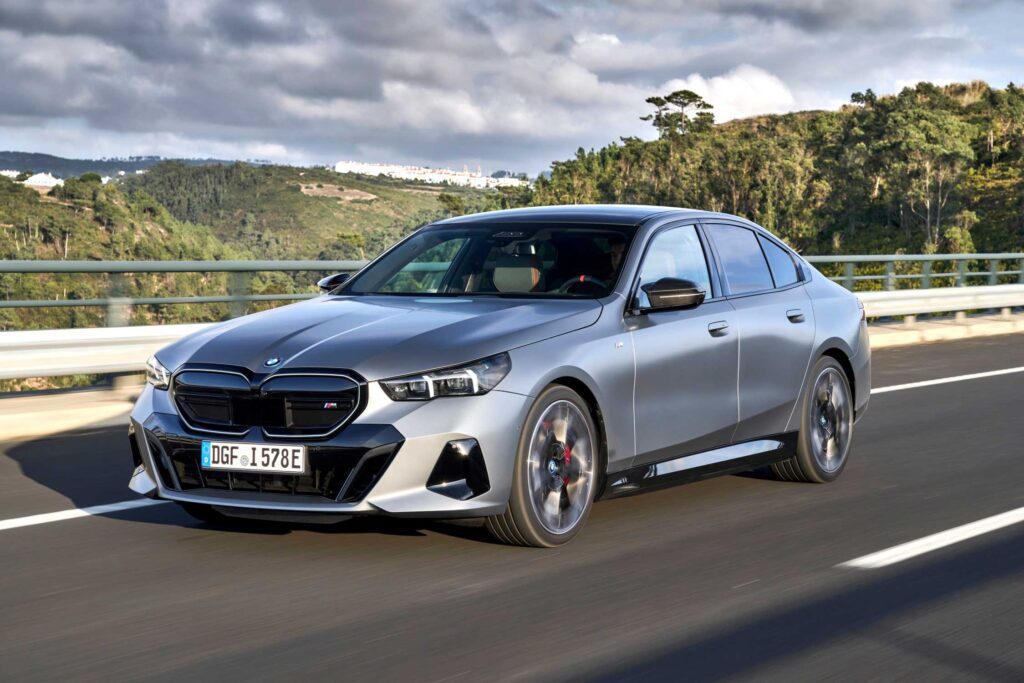
Being a brand new model to the BMW range, it is difficult to see how well the i5 may depreciate over a longer period, however early signs are positive when compared against some other electric vehicles. It also has the added benefit of, much like the Taycan, being exactly what you would expect from the reputation of the brand. Unusually for an electric car however, it is the range topping M60 that represents the slowest depreciating car in the range so far. Starting at £97,000 before options, at time of writing the average sale price for this M Performance model was around £85,000 even after more than 6 months and 5,000 miles or more. At a retention of over 87% of its value, it may be early days but it seems to be holding its price well so far.
Tesla Model X
The Tesla Model X redefined the electric SUV market when it was launched and with good reason. It may feature wild gullwing doors, be available with over 1,000bhp in ‘Plaid’ trim and feature many unnecessary features like ‘party mode’, but it does everything else to do with actually driving the car (or it driving itself) very well indeed. When it arrived it seemed ludicrous that an electric SUV would cost in excess of £100,000, however rising prices over time and rival models being similarly priced means that it no longer seems like it stands out as a bit pricey.
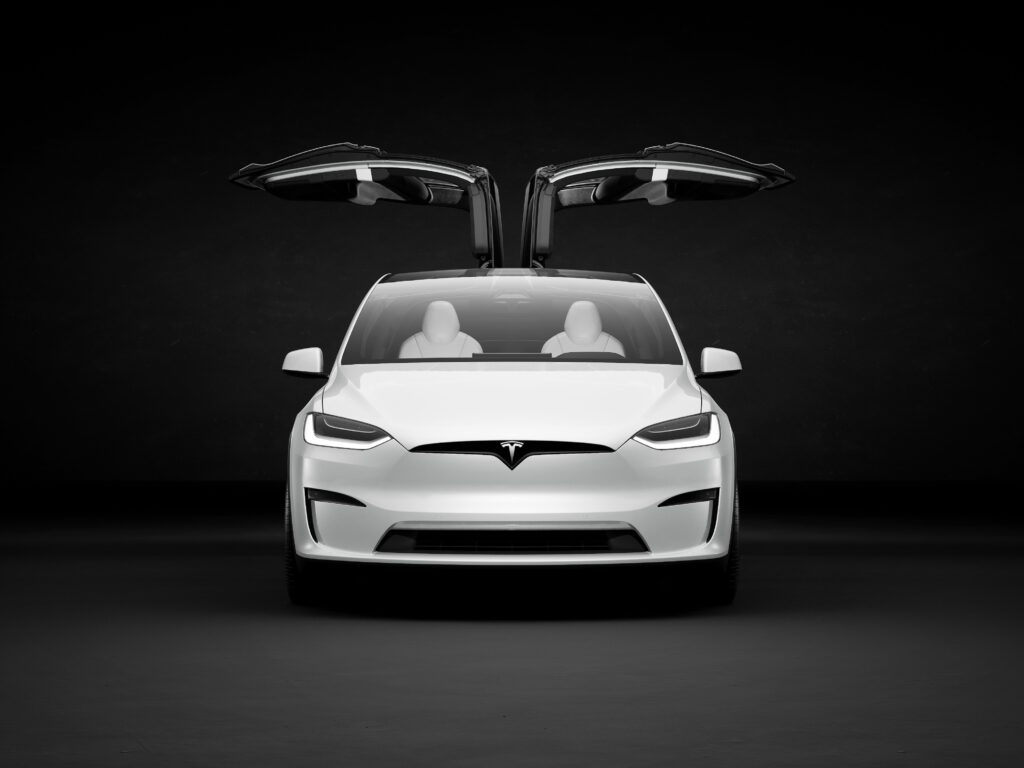
Despite getting on a bit now in electric car terms, as well as being swamped by a whole host of rival models from an abundance of manufacturers, the Model X remains one of the slowest depreciating electric cars you can buy. After the standard 3 years and 36,000 miles it manages to hold on to over 65% of its value, which for a premium model car is a fantastic achievement indeed. It may be almost 6 years old, but the constantly updated technology and features and the svelte styling ensures that the Model X is a great place to start your electric SUV search.
Audi RS E-Tron GT
Using the Porsche Taycan as a base is always going to be a great place to start for the RS E-Tron GT. Then when combined with the sophisticated Audi styling and reputation for refined and luxurious interiors, the model was sure to be a hit from the start. In RS trim and built alongside the R8 at their specialist Audi Sport facility, it offers almost 650bhp and a 0-62mph sprint time of just 3.3 seconds. Looking more svelte and shapely than its closely related sister car, the E-Tron GT manages to look even better than the Taycan. Its understated badge and ability to blend in without making a shout about things means that the car manages to pull of a more sophisticated choice of the two, much like the RS Q8 does against the Lamborghini Urus.
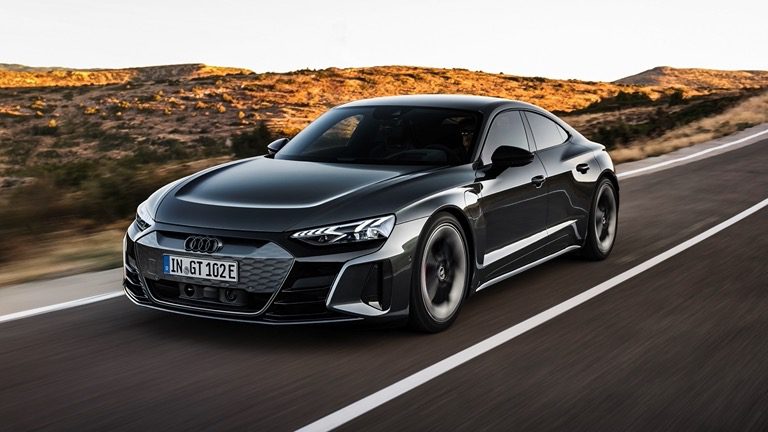
Just like the i5 mentioned above, it is the flagship RS E-tron GT that holds its value better than the rest of the range, especially when in top level Vorsprung trim level. It might have cost more in the first place than other cars in the line-up, but it manages to retain about 62% of its value after 3 years and 36,000 miles of motoring. Not only does this mean it is a great purchase when new, but it should still keep you smiling when you come to trade it in or sell it at a later date.
Polestar 2
The Polestar 2 was praised upon launch as a genuine rival to the dominance of the Tesla Model 3, and with good reason. Its stylish Scandinavian looks, Volvo reputation for safety and security, and sports car levels of performance and handling, means it may offer even more of a complete package than the popular American model does. Its familiarity and ease of use also means that its abundance of technology is assuring without being intrusive and overwhelming.
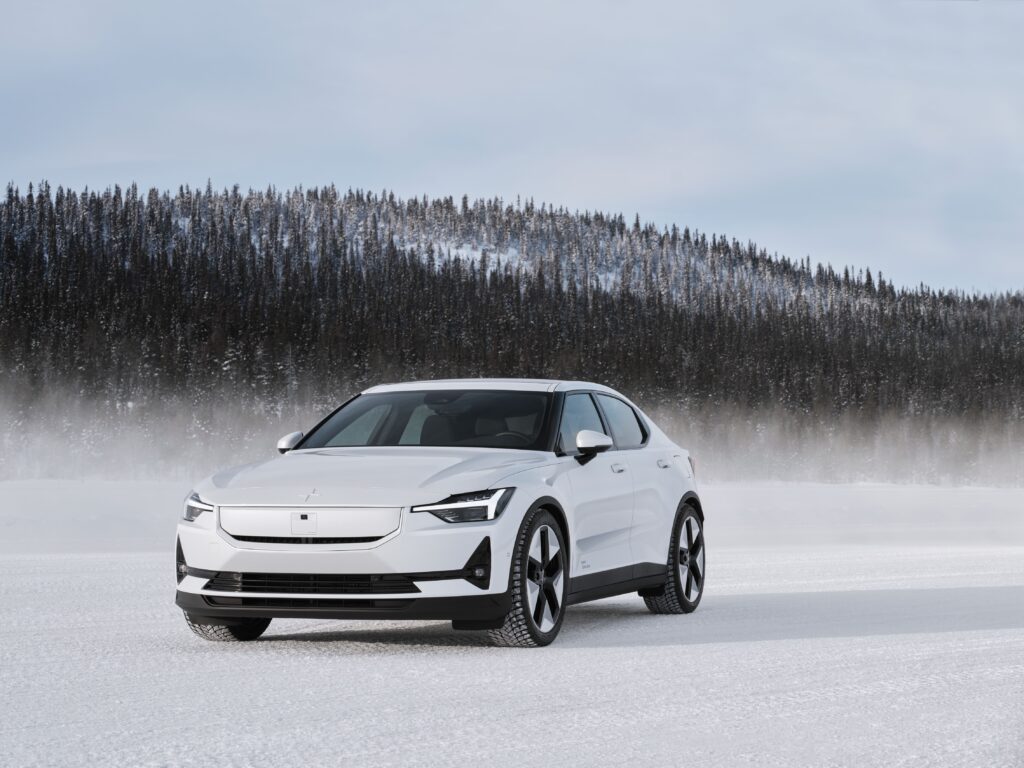
Despite appearing on our list of cars that depreciate quite dramatically to enable them to become nearly new bargains, strangely the Polestar 2 seems to almost level up from then onwards. A top of the range Dual Motor Long Range Performance model that is a little over 10 months old can be found for around £35,000-£38,000, whereas at time of writing, a 2- or 3-year-old model of the same specification could be found for a similar price point. So, after 3 years and 36,000 miles of ownership the value retention stands at around 65% of its original list price. Not only that, but with the current market competition to try and tempt people into electric cars, and in order to meet the strict ZEV Mandate, there is as much as £5,000 off the list price as well as additional specification packages available at no additional charge.
Could now be the perfect time to consider an electric car?
Oracle Car Finance
If you are worried about the depreciation in your vehicle, or think you may be in negative equity, speak to your dedicated Account Manager today. Our expertise and many years of knowledge of the motor industry mean we are well equipped with the ins and outs of car valuations and providing helpful information about the equity of your vehicle.
If you are looking at purchasing your next vehicle, whether it is fully electric or has a combustion engine, at Oracle Finance we have your next car’s funding sorted no matter how it is powered. Our expert Account Managers use our panel of over 20 specialist lenders to help you to find the perfect package, bespoke to you and your circumstances. Our team are always on hand should you have any questions about arranging car finance and your dedicated Account Manager is ready to take your call today.
With over 2,300 Trustpilot reviews and a overall rating of 5 out of 5, and as four-time consecutive award winners of the Best Specialist Car Finance Provider award from 2020 through to 2023, you too can find out why thousands of people trust us time and time again to find a smarter, tailored funding solution when looking for your next dream car.
Make sure you follow us on Instagram, LinkedIn and Facebook to keep up to date with what’s happening in the market and to see some stunning photos and videos of the amazing cars we fund.
